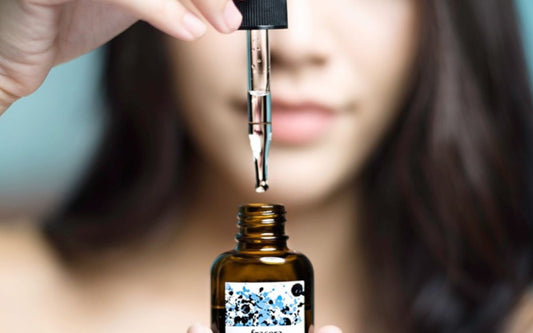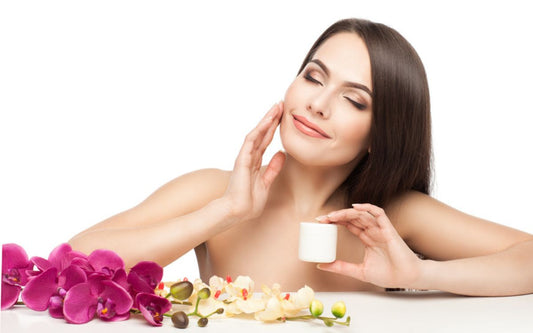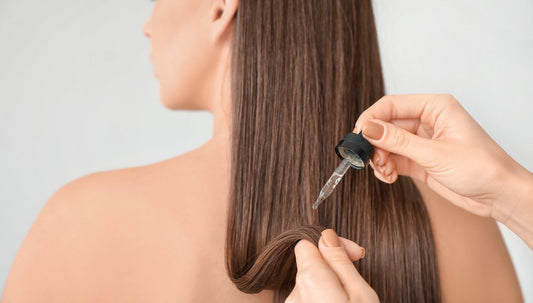There are many misconceptions and fallacies in the skincare and wellness industry. One such topic that frequently causes controversy is the link between food and acne. "Do eggs cause acne?" is a question that comes up frequently. Eggs have come under fire for what many believe to be a link between acne and the development of the skin condition. This blog will explore the scientific evidence for or against the belief that eggs cause acne.
What Is Acne?
It's better to get an understanding of what acne is before you go into the egg-acne discussion. Pimples, blackheads, whiteheads, and inflammation are typical symptoms of acne, a prevalent skin disease that most commonly affects the face, neck, chest, and back. Diet, hormones, skincare routine, and heredity are a few of the factors that can cause acne.
Also Read: Difference between acne and pimples?
How Does Your Diet Play A Part In Acne?
The precise link between food and acne is complicated and multi-faceted, but studies have shown that specific dietary components may make acne worse for some people. It has been reported that diets high in saturated fats, dairy products, and those with a high glycemic index may worsen acne symptoms for certain individuals. To be sure, not everyone gets pimples from the same foods, and the extent to which a person's diet affects their acne is quite specific.
How Do Eggs Cause Acne?
Let's now tackle the important query: do eggs cause acne? Although certain research and anecdotal data have hinted at a possible connection between eating eggs and acne, the scientific community has not reached a definitive conclusion. Protein, vitamins, and minerals are just a few of the many vital components found in eggs. On the other hand, there are many who believe that hormones and biotin found in eggs are the culprits behind acne.
Let’s shed light on each ingredient present in an egg.
1. The Role Of Biotin
Eggs are a great way to get the B vitamin biotin, which accounts for a large chunk of the RDAs. Research shows that taking in too much biotin might lead to an increase in keratin production and, in turn, acne. When there's an excess of keratin, it can clog pores and cause acne to break out.
2. The Role Iodine Content
Although iodine is necessary for thyroid function and general health, eating too many eggs or other foods high in iodine might make some people break out in acne. Excessive iodine levels are associated with an upregulation of the sebaceous glands, which secrete more sebum—the greasy material that blocks pores and causes acne. When some people consume more iodine than usual, it might make their acne more severe as they are more susceptible to it.
Likewise, iodine has the ability to remove excessive fluoride from the body. Dead skin, perspiration, or sebum are the pathways that your body uses to expel fluoride when it leaves your system. Acne may result from this. While eggs do contain some helpful iodine, the fluoride in your system is actually the reason for the acne breakouts that occur during excretion.
3. An Excessive Amount Of Progesterone
The progesterone found in eggs is another potential cause of acne breakouts. Even though the human body can produce progesterone on its own, adding synthetic hormones to your diet on a daily basis can throw off your body's hormonal equilibrium. If your progesterone levels suddenly spike, you may start to see some acne.
Once again, the outcome can differ for each individual. Each individual has their own unique reaction time and tolerance level. Overconsumption of eggs might cause acne if you are taking birth control pills or other treatments that contain a lot of progesterone.
You might have noticed that some people consume eggs regularly and never have acne. Taking the right number of eggs for your body's needs could be one reason. Therefore, if you suffer from acne, it is best to monitor your egg consumption and make the necessary adjustments.
4. High Albumin Levels
One type of protein that your liver can produce independently is albumin. Vitamins, hormones, and enzymes all rely on this protein to transport them to their respective locations in the body. However, your digestive system may suffer from an overabundance of exogenous albumin. As a result, your lymphatic system might not be able to process and store extra albumin.
Moreover, you can get a lot of albumin from egg whites. When your body is unable to break down albumin, it builds up in your lymphatic system and causes inflammation. It can also cause acne.
Helpful Tips For Acne Management
If eggs are a contributing factor to your acne, there are multiple practical measures you can take to control acne and maintain good skin:
- Eat a variety of fruits and vegetables, along with nutritious grains and lean meats, on a regular basis.
- Make sure you drink enough water every day to keep yourself hydrated.
- Gently cleanse, moisturize, and use non-comedogenic products such as anti acne serum as part of your good skincare routine.
- Explore best skincare products in Pakistan or best serums for glowing skin in Pakistan to find which skincare item suits you the best.
- Learn to relax, get some exercise, and engage in relaxing hobbies to manage stress.
- If acne does not go away after following these steps, it is best to see a dermatologist for advice on a customized skincare routine.
Conclusion
To sum up, there is little scientific evidence to back the belief that eggs cause acne, but the myth continues to circulate in popular culture anyhow. While some people may find that eggs worsen acne, for the most part, most people may eat eggs as part of a healthy diet. Focus on general lifestyle factors and skincare practices to promote clear, healthy skin rather than identifying particular meals as acne fenders. Keep in mind that a balanced and moderate approach is essential while dealing with acne and food.
Frequently Asked Questions
What Are The 5 Causes Of Acne?
Multiple elements work together to induce acne. The hormonal changes that occur throughout adolescence, menstruation, and hormonal imbalances can cause an increase in sebum production, which in turn causes acne breakouts. Another important reason is when dead skin cells, oil, and germs accumulate and block the pores. Likewise, if the Propionibacterium acnes (P. acnes) bacteria are present on your skin, it can cause inflammation and worsen your acne. Furthermore, some people have acne breakouts or worsening of symptoms when they consume certain foods, such as those with a high glycemic index or dairy products. Last but not least, stress can amplify inflammation and oil production, making acne more probable or exacerbating its symptoms.
Are Eggs Good For Acne?
Although eggs can be a useful component of a skin-healthy diet, the effect they have on acne is person-specific. Eggs are good for you since they have a lot of healthy nutrients, including protein, vitamins, and minerals. Although there isn't enough research to draw any firm conclusions, some people may find that the hormone content or biotin in eggs causes acne flare-ups. Keep an eye on how your skin reacts to eggs and other foods on a personal level.
Does Boiled Egg Cause Acne?
Most people do not have an immediate breakout of acne after eating boiled eggs or any other type of egg. However, people's reactions could differ. If you find that eating cooked eggs causes your acne to flare up, you might consider cutting back on your consumption and seeing if it helps. In most cases, a healthy diet and regular skincare routine will have a greater influence on controlling acne.
How to Cure Acne Naturally in 3 Days?
It may be difficult to cure acne naturally in only three days, but there are things you can do to lessen inflammation and make your skin look better:
- Gently wash twice a day with a gentle, non-comedogenic cleaner.
- Use tea tree oil or diluted apple cider vinegar as a spot treatment for acne.
- Drink lots of water to help your body flush out toxins.
- Stay away from harsh skincare products and too much sun exposure to avoid irritants.
- Eat a diet rich in fruits, vegetables, and omega-3 fatty acids to keep inflammation at bay.
What Foods Cause Acne?
For some, eating particular foods can make their acne worse. Some foods are as follows:
- Consumption of sugary snacks, white bread, and processed carbs can cause a surge in blood sugar levels, which may exacerbate acne.
- Some people see an increase in acne symptoms after consuming dairy products like milk and cheese, which contain hormones.
- Greasy, fried fast food can clog pores and contribute to oil production.
- Milk chocolate has been linked to an increase in acne symptoms in a few studies.
- Fast food or foods with a lot of chemicals and trans fats can be bad for your skin.
Does Egg Yolk Cause Acne?
Egg yolks are frequently picked out because of the hormones and fat they contain. Although there is no conclusive scientific proof linking egg yolks to acne, cutting back on consumption may help clear up skin for some. The best way to find out if egg yolks are causing your acne is to cut them out of your diet.




